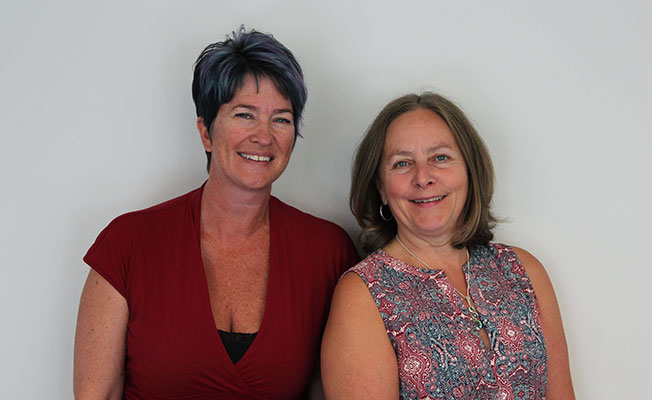CHÉOS Scientist Dr. Martha Mackay will serve as a mentor for a team of health care professionals who have been funded through the inaugural Knowledge Translation Challenge. The KT Challenge, jointly supported by PHC and Vancouver Coastal Health, was designed to support teams of clinicians who do not have KT expertise in designing and implementing a KT initiative.
Quincy Young, a psychologist in the Heart Centre where Dr. Mackay works as a Clinical Nurse Specialist, will lead the team. They will implement an intervention to screen all cardiac patients for depression and anxiety before they are discharged.
“This is of particular importance because of the strong, well-documented association between depression and poor outcomes in cardiac patients,” said Dr. Mackay. “It’s been recommended by professional bodies and clinical guidelines that this type of screening should be a part of routine care.”

Specifically, the team will use the Screening Tool for Psychological Distress (STOP-D), a tool created by Young and later validated for use with inpatients through a 2011 PHC Practice-Based Research Challenge Award, where Dr. Mackay also served as a mentor.
“Our main focus for this project is to figure out how to roll this out on the ward,” said Young, “How does this screening process fit into nurses’ workloads? What it is the best way and optimal timing to introduce it?”
After completing the STOP-D, patients who may have depression or anxiety will be approached by the nursing staff and given information about these conditions, why these conditions matter to their heart health, and a list of resources that are available. The results of the screening will also be included in patients’ discharge summaries, which will allow primary care providers to follow up and deliver further care.
The team plans to develop and strengthen the impact of this type of screening. Their plans include projects to improve the way results are delivered to primary care providers, to understand how family doctors are utilizing the information, and to evaluate a web-based therapy for these patients. These projects are all in different stages of the research funding process.
“The KT Challenge is unique because it allows frontline staff who would not normally be able to participate in a KT project to get involved and to better understand the research and KT processes,” said Dr. Mackay.


